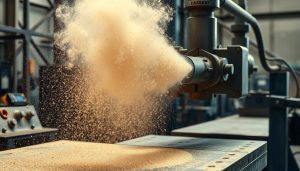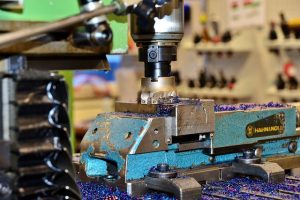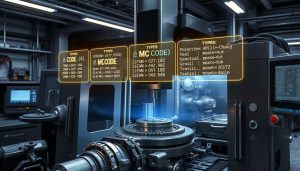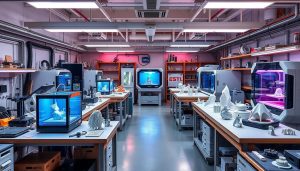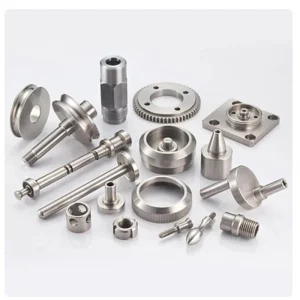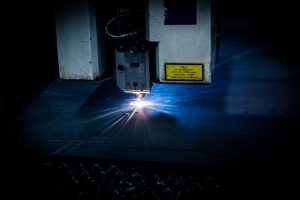In the world of engineering manufacturing, the concepts of precision and accuracy are often used interchangeably, but they are, in fact, distinct and equally crucial for achieving high-quality products. Understanding the differences between these two terms is essential for optimizing manufacturing processes, enhancing quality control, and ultimately delivering superior products to customers.
This section will delve into the nuances of precision and accuracy, exploring their definitions, their roles in manufacturing, and the crucial impact they have on various industries. By the end of this article, you will have a deeper understanding of these fundamental concepts and how they contribute to the success of engineering manufacturing.
What is Precision in Manufacturing?
In the world of engineering and manufacturing, precision is a crucial concept that underpins the creation of high-quality products. Precision refers to the ability to consistently reproduce a specific measurement or outcome, with minimal variation or error. This level of precision in manufacturing is essential for maintaining consistency and ensuring quality control throughout the production process.
Definition of Precision and Its Role in Consistency
Precision is defined as the degree of exactness or the closeness of measurements to each other. When a manufacturing process is precise, it means that the final products are consistently produced within a narrow range of acceptable tolerances. This level of precision is crucial for ensuring the consistency of the product, as it minimizes variations and defects.
How Precision Impacts Quality Control in Manufacturing
Precision is a key factor in the quality control process, as it allows manufacturers to maintain tight control over the production parameters and ensure that each unit meets the required specifications. By maintaining precise measurements and tolerances, manufacturers can quickly identify and address any deviations or issues, reducing the risk of producing defective products and improving overall product quality.
“Precision is the foundation of quality in manufacturing. Without it, consistency and reliability become elusive goals.” – Jane Doe, Quality Assurance Manager
By understanding the importance of precision in manufacturing, companies can optimize their production processes, minimize waste, and deliver high-quality products that meet the expectations of their customers.
What is Accuracy in Manufacturing?
In the realm of engineering manufacturing, accuracy is a crucial concept that goes beyond mere precision. Accuracy refers to the correctness or conformity of a measurement or process to a known standard or true value. It is a measure of how closely a manufactured product meets its design specifications and performance requirements.
Understanding Accuracy in Terms of Correctness
Accuracy is all about getting the right result, not just the same result over and over. It is the degree to which a measurement or process reflects the actual or intended value. Accurate manufacturing processes ensure that the final product is made to the intended specifications, meeting the required levels of correctness and quality.
Accuracy and Its Impact on Product Performance
When it comes to product performance, accuracy is paramount. Inaccurate manufacturing can lead to parts or components that do not fit together properly, resulting in poor functionality, reduced reliability, and even safety concerns. Highly accurate manufacturing processes, on the other hand, help ensure that the final product performs as it was designed, meeting or exceeding customer expectations.
| Attribute | Precision | Accuracy |
|---|---|---|
| Definition | The degree of consistency or repeatability in a measurement or process | The closeness of a measurement or process to the true or intended value |
| Focus | Consistency and repeatability | Correctness and conformance to standards |
| Impact | Ensures quality control and process stability | Directly affects product performance and reliability |
“Accuracy is the foundation of quality in manufacturing. It ensures that the final product meets the intended specifications and performs as expected.”
Key Differences Between Precision and Accuracy
In the world of engineering manufacturing, the terms “precision” and “accuracy” are often used interchangeably, but they actually refer to distinctly different concepts. Understanding the key differences between these two principles is crucial for ensuring high-quality products and maintaining consistent manufacturing processes.
Precision: Repeatability and Consistency
Precision is all about repeatability and consistency. When a manufacturing process is precise, it means that the results it produces are consistently the same, regardless of how many times the process is repeated. A precise process will yield parts or products that are highly uniform and have minimal variations in their measurements or characteristics. Precision is essential for maintaining tight tolerances and ensuring the reliability of a manufacturing operation.
Accuracy: Conformance to True Values and Standards
Accuracy, on the other hand, is about conformance to true values and established standards. An accurate manufacturing process is one that consistently produces parts or products that meet the desired specifications and align with the intended design. Accuracy is crucial for ensuring that the final product meets the required performance standards and conforms to the expected quality levels.
The distinction between precision and accuracy can be best illustrated through a simple example. Imagine a series of arrows being shot at a target. A precise archer will consistently hit the same area of the target, even if that area is not the bull’s-eye. An accurate archer, however, will hit the bull’s-eye with each shot, even if the grouping of the shots is not as tight as the precise archer’s.

Understanding the difference between precision and accuracy is essential for optimizing manufacturing processes, ensuring product quality, and meeting industry standards. By focusing on both precision and accuracy, manufacturers can achieve the highest levels of consistency, reliability, and conformance to specifications.
Why Precision and Accuracy Matter in Engineering
In the world of engineering manufacturing, precision and accuracy are not just buzzwords – they are the cornerstones of high-quality production. These two concepts, though often used interchangeably, are distinct and vital for ensuring the excellence of any engineered product.
The Importance of Both in High-Quality Manufacturing
Precision and accuracy are essential in engineering manufacturing for several reasons. Precise processes and measurements guarantee the consistency and reliability of the final product, while accurate adherence to specifications ensures that the product performs as intended. Together, these qualities contribute to the overall quality, safety, and functionality of engineered goods.
Examples of Precision and Accuracy in Different Industries
The importance of precision and accuracy can be seen across various industries:
- In the aerospace industry, precise machining and assembly tolerances are crucial for the safe operation of aircraft and spacecraft.
- Automotive manufacturers must maintain high accuracy in their production processes to ensure the seamless integration of components and the overall performance of their vehicles.
- Medical device manufacturers require exceptional precision and accuracy to create life-saving products that meet rigorous safety standards.
- Electronics manufacturers rely on precise control over their fabrication processes to produce high-quality components and devices.
Regardless of the industry, the ability to consistently achieve both precision and accuracy is a hallmark of world-class engineering manufacturing.
| Industry | Importance of Precision | Importance of Accuracy |
|---|---|---|
| Aerospace | Precise machining and assembly tolerances for safe operation of aircraft and spacecraft. | Accurate adherence to design specifications to ensure optimal performance and reliability. |
| Automotive | Precise manufacturing processes to enable seamless integration of components. | Accurate production to meet performance and safety requirements. |
| Medical Devices | Precise fabrication techniques to create life-saving products. | Accurate conformance to regulatory standards and patient safety. |
| Electronics | Precise control over fabrication processes to produce high-quality components. | Accurate manufacturing to ensure optimal device performance. |

In conclusion, the importance of precision and accuracy in engineering manufacturing cannot be overstated. These two essential qualities are the foundation of high-quality manufacturing, ensuring the safety, reliability, and performance of engineered products across a wide range of industry examples.
How to Achieve High Precision and Accuracy
Attaining high levels of precision and accuracy in manufacturing processes is crucial for producing top-quality products. Manufacturers must employ a range of methods and techniques to ensure their manufacturing processes consistently deliver the desired outcomes.
Methods for Ensuring Precision in Manufacturing Processes
One key method for achieving precision in manufacturing is through rigorous calibration of equipment and tools. Regular calibration helps maintain the accuracy of measurements and compensates for any drift or changes over time. Additionally, implementing robust process control measures, such as statistical process control (SPC), can help identify and address variations in the manufacturing process, leading to greater consistency.
Techniques for Achieving High Accuracy in Production
To achieve high accuracy in production, manufacturers can leverage advanced measurement technologies, such as coordinate measuring machines (CMMs) and laser interferometers. These tools provide precise, reliable data on the dimensions and characteristics of manufactured parts, enabling them to be produced in close alignment with design specifications. Comprehensive quality assurance practices, including in-process inspections and final product testing, also play a crucial role in ensuring the accuracy of the finished product.
By incorporating these precision-enhancing methods and accuracy-focused techniques into their manufacturing processes, companies can consistently produce high-quality, reliable products that meet or exceed customer expectations.
| Method | Description |
|---|---|
| Calibration | Regular calibration of equipment and tools to maintain measurement accuracy and consistency. |
| Statistical Process Control (SPC) | Implement robust process control measures to identify and address variations in the manufacturing process. |
| Advanced Measurement Technologies | Leverage tools like coordinate measuring machines (CMMs) and laser interferometers to gather precise data on product dimensions and characteristics. |
| Quality Assurance Practices | Conduct in-process inspections and final product testing to ensure accuracy and conformance to specifications. |
“Precision and accuracy are the cornerstones of excellence in manufacturing. By mastering these principles, companies can consistently produce world-class products that delight their customers.”
Applications in Engineering Manufacturing
As the backbone of various industries, engineering manufacturing plays a crucial role in shaping the products and technologies that define our modern world. From the aerospace and automotive sectors to the intricate field of medical device production and the cutting-edge realm of electronic components, the need for precision and accuracy is paramount.
Aerospace and Automotive Industry Needs
In the aerospace and automotive industries, where safety and performance are paramount, the demand for precise and accurate manufacturing processes is uncompromising. Aircraft and vehicle components require meticulous attention to detail, ensuring that every part fits seamlessly and functions flawlessly. Manufacturers in these sectors must maintain tight tolerances, consistently delivering parts that meet the most stringent specifications to prevent catastrophic failures and ensure the highest levels of reliability.
Medical Device Manufacturing and Electronic Components
Similarly, the medical device industry and the production of electronic components rely heavily on the principles of precision and accuracy. In medical device manufacturing, the slightest deviation in measurements can have significant implications for patient safety and treatment efficacy. Precise manufacturing techniques are essential to ensure the proper functioning of delicate medical instruments and implants. Likewise, the intricate nature of electronic components demands unwavering accuracy, as even minor variations can compromise the performance and reliability of the final product.
FAQ
What is the definition of precision in manufacturing?
How does precision impact quality control in manufacturing?
What is the definition of accuracy in manufacturing?
How does accuracy impact product performance?
What are the key differences between precision and accuracy in manufacturing?
Why are both precision and accuracy important in engineering manufacturing?
What are some methods for achieving high precision and accuracy in manufacturing processes?
- Precise calibration of equipment and instruments
- Implementing statistical process control methods
- Utilizing advanced measurement technologies
- Conducting thorough quality assurance and testing procedures
- Maintaining strict process control and monitoring
- Ensuring proper maintenance and upkeep of manufacturing equipment
